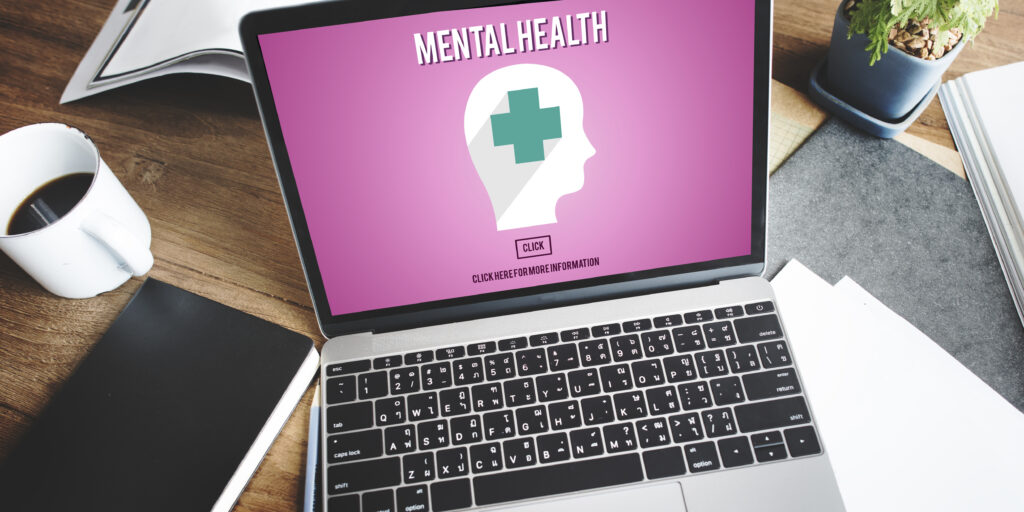The connection between mind and body is one of the most critical aspects of human health and well-being. Mental and physical health are not isolated aspects of our lives but rather intertwined parts of a whole. When one aspect suffers, the other often follows, and vice versa. In this blog, we’ll explore the science behind this connection, how mental well-being directly impacts physical health, and offer strategies to build a stronger, healthier you through a holistic approach.
Understanding the Mind-Body Connection
The mind-body connection refers to the relationship between a person’s mental and emotional well-being and their physical health. Simply put, our mental state affects how our body feels, and our physical state can significantly impact our emotions. This connection has been recognized for centuries, from ancient medicinal practices to modern science.
In recent decades, extensive research has shown that mental and physical health are inextricably linked. Chronic stress, anxiety, and depression, for example, are known to trigger physical symptoms like headaches, digestive problems, and even heart disease. Conversely, physical conditions such as chronic pain or fatigue can lead to mental health issues such as depression or anxiety.

The Science Behind the Mind-Body Relationship
The connection between the mind and body primarily revolves around the central nervous system (CNS), the immune system, and the endocrine system. These three systems communicate with each other through chemical signals such as hormones, neurotransmitters, and immune cells.
- Central Nervous System (CNS): The brain controls almost every function in the body, including our responses to stress, emotions, and environmental stimuli. When the brain senses danger or stress, it activates the fight-or-flight response, which involves the release of stress hormones like cortisol and adrenaline. These hormones prepare the body to deal with the stressor, but when stress becomes chronic, it can take a toll on the body.
- Endocrine System: The endocrine system, which consists of glands that release hormones, plays a major role in regulating mood, energy levels, and metabolic processes. For example, the hypothalamus and pituitary gland are key players in the body’s stress response. Chronic stress can disrupt hormonal balance, leading to physical issues like weight gain, high blood pressure, and digestive problems.
- Immune System: Stress and emotional distress can weaken the immune system, making the body more vulnerable to infections and diseases. The body’s inflammatory response, when triggered frequently, can contribute to diseases like arthritis, heart disease, and even cancer.

How Mental Health Affects Physical Health
Mental health conditions like anxiety, depression, and chronic stress can significantly impact your physical health. Here are a few ways this connection plays out:
- Chronic Stress: When stress becomes a long-term issue, it can lead to heart disease, high blood pressure, and diabetes. Stress causes the body to release adrenaline and cortisol, which, if left unchecked, can raise blood sugar, cause inflammation, and damage blood vessels.
- Depression: Depression can cause a lack of energy and motivation, making it hard for people to exercise or maintain a healthy lifestyle. This can lead to physical issues like obesity, cardiovascular problems, and a weakened immune system. Additionally, depression is often accompanied by chronic pain, sleep disturbances, and digestive problems.
- Anxiety: Anxiety disorders can cause symptoms like rapid heartbeat, muscle tension, and stomach issues. Over time, untreated anxiety can increase the risk of developing chronic conditions like heart disease or gastrointestinal disorders.
- Sleep Problems: Mental health issues are often linked to sleep disorders, such as insomnia or sleep apnea. Poor sleep can weaken the immune system, slow recovery from illness, and increase the risk of obesity, diabetes, and heart disease.

How Physical Health Affects Mental Health
Just as mental health affects the body, the state of our physical health can also impact our mental and emotional well-being. For instance, chronic illness or injury can lead to depression and anxiety. Conditions like diabetes, heart disease, and cancer often carry an emotional toll, as patients deal with pain, fatigue, and fear of the future.
- Chronic Pain: Chronic pain conditions, such as arthritis, fibromyalgia, or back pain, can contribute to depression, anxiety, and a sense of helplessness. The ongoing discomfort can lead to irritability, sleep disturbances, and withdrawal from social activities, all of which impact mental health.
- Inactivity: Lack of physical activity can not only weaken the body but also increase the risk of mental health conditions. Exercise releases endorphins, the body’s natural feel-good chemicals, which improve mood and reduce stress. Without physical activity, people may experience a decline in energy, an increase in anxiety, and even depression.
- Nutrition: A poor diet can affect mental clarity and energy levels. Nutritional deficiencies, particularly in vitamins like B12 and omega-3 fatty acids, are linked to mood disorders such as depression and anxiety.

Building a Stronger You: Strategies for Mental and Physical Wellness
Given the undeniable connection between mental and physical health, it is crucial to take a holistic approach to wellness. Strengthening both your mind and body requires a blend of healthy habits that promote mental well-being and physical fitness. Here are a few strategies to help you achieve this balance:
- Prioritize Sleep: Quality sleep is essential for both mental and physical health. It helps your brain process emotions, solidifies memories, and allows your body to repair and recharge. Aim for 7-9 hours of restful sleep per night and maintain a consistent sleep schedule.
- Exercise Regularly: Physical activity is one of the most effective ways to boost mental and physical health. Exercise reduces stress, anxiety, and depression while improving cardiovascular health, strengthening muscles, and enhancing mood. Even a 30-minute walk each day can make a significant difference.
- Mindfulness and Meditation: Practices like mindfulness and meditation can calm the mind, reduce stress, and improve overall well-being. Taking time to practice mindfulness can improve your emotional regulation, leading to better decision-making and a healthier perspective on life.
- Healthy Nutrition: A balanced diet rich in fruits, vegetables, whole grains, and lean proteins can have a profound impact on both mental and physical health. Avoid processed foods and excess sugar, as they can lead to mood swings and fatigue.
- Social Connections: Maintaining strong social relationships is key to mental well-being. Surround yourself with supportive friends and family, and don’t hesitate to seek help when needed. Social interactions can reduce feelings of loneliness and stress, contributing to a healthier mental state.
- Manage Stress: Learn to identify stress triggers and develop strategies to manage them. Whether it’s through exercise, deep breathing, or engaging in hobbies, managing stress is vital for both mental and physical health.
- Seek Professional Help: If you’re struggling with mental health, don’t hesitate to seek help from a professional. Therapy or counseling can provide you with tools to manage emotions, reduce stress, and develop coping strategies that improve both your mental and physical health.

Conclusion
Your mind and body are interconnected, and achieving true wellness requires nurturing both aspects. By understanding how mental health influences physical health—and vice versa—you can take steps to build a healthier, stronger you. Incorporating habits like regular exercise, balanced nutrition, and mindfulness practices into your daily life will not only improve your physical condition but also foster mental clarity and resilience. Remember, taking care of your mind is just as important as taking care of your body, and by doing so, you set the foundation for long-term health and well-being.








